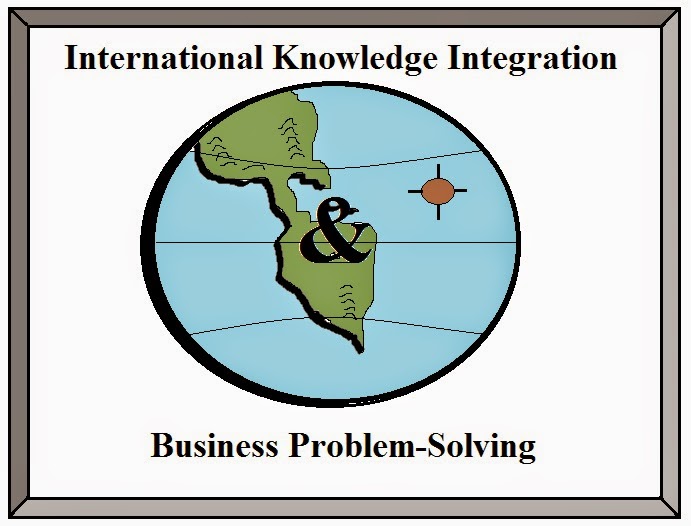Someday we might be looking back at those old laptops and cell phones and blow the dust off the keyboards as you would the cover of some rare hard bound book. Across the nation educational platforms are changing bringing with it uncertainty about the future of higher education. As technology disrupts the foundation of business colleges there will be a closer alliance between businesses and academia to generate new solutions that improve the skill sets of graduates.
According to a Business Education Jam session it is possible to use technology to narrow the gap between academic and industry stakeholders (Freeman, 2014). The traditional gap that exists between academic knowledge and business knowledge is narrowing as stakeholders and universities take advantage of new technologies that offer a chance to connect at multiple levels.
Technology has advanced to the point that communication is moving at a much faster pace than in the past. New generation technologies and the way these technologies are used socially are impact the platforms of higher education (Rajesh, 2015). Higher education is adjusting to the new methods of communication to foster knowledge transference and this will have a natural impact on business-academia relationships.
Greater partnerships between employers and higher education can provide greater relevancy in curriculum development. Students should be learning skills that truly encourage greater ability to work in the modern market and develop systems thinking that can influence their ability to understand organizational operations.
The caveat being the courses that may not be directly career oriented but do support the general understanding of human nature and life. Greater communication will help industry stakeholders understand that ethics courses, philosophy, humanities, are not wasted courses when applied appropriately to human behavior and management. A shared understanding between colleges and employers can be found through perspective sharing.
The differences of perspective between the hallowed halls of higher education and the nitty gritty of corporate life will become more blurred in the future as communication technology advances and create permeability within these borders. Communication will influence the way leaders in both sectors think about challenges and opportunities. This increased level of communication doesn't need to be purposeful to create influence but implementing a more focused approach to sharing perspectives can lead to faster conclusions.
Freeman, K. (2014). The call for innovation in business education. People & Strategy, 37 (2).
Rajesh, M. (2015). Revolution in communication technologies: impact on distance education. Turkish Online Journal of Distance Education, 16 (1).
The blog discusses current affairs and development of national economic and social health through unique idea generation. Consider the blog a type of thought experiment where ideas are generated to be pondered but should never be considered definitive as a final conclusion. It is just a pathway to understanding and one may equally reject as accept ideas as theoretical dribble. New perspectives, new opportunities, for a new generation. “The price of freedom is eternal vigilance.”—Thomas Jefferson
Showing posts with label management education. Show all posts
Showing posts with label management education. Show all posts
Friday, March 13, 2015
Friday, February 13, 2015
Creating Higher College Value By Connecting to the Business Community
A common question arises about how to raise the value of higher education. With any societal institution there are stakeholders who look on at the changes and scratch their head as if to state something helpful. Alas nothing comes out! Connecting the business community and their ideas to higher educational may just help raise the value of a college education while promoting higher forms of experimental knowledge.
The end user is the ultimate feedback loop that evaluates the product as successful or a failure. The same concept applies to higher education, government, or retail outlets. If the end users are not happy with the product then it will have less value in the future. Turning the scratching of heads into useful dialogue may just shed a little light on methods of improving higher education output for public consumption.
Advanced economies encourage the creation and dissemination of knowledge for growth. Higher education is the formal institution in charge of that process and fosters higher levels of learning. Developing higher education to advance the civic and economic output of society is fundamental to its existence. Universities should be concerned with the quality and cost of their output.
Higher education develops products in the form of knowledge, degrees and intellectual contributions. End users have a vested interested in the the production of that output and their needs should be considered in any meaningful discussion. Drawing in the businesses community helps to develop stronger curriculum and better scientific models.
Curriculum:The business community is an important source for understanding their employment needs. Curriculum that offers the type of knowledge needed to further society and business interests helps expand America's economic influence. Universities should seek out the business communities input in terms of what knowledge is needed in the market. Lower level courses offering more basic knowledge when compared to upper level courses that include experimentation and application of new ideas.
Experimentation: Ideas developed in academia need to be tested somewhere. Typically after initial experimentation a model is defined and published. A few businesses may read these scientific discoveries and apply the same concepts to their business. Connecting the business community with universities to test and try out new theoretical models encourages faster innovation in society. Business becomes the feedback loop and turns the theoretical into the practical.
Business colleges have a great advantage if they develop appropriate mechanisms to harness the power of the business community and draw them into the discussion to help develop programs that are beneficial to compete in today's market. Modern technology offers the ability to poll and synthesize information that was not possible just a decade ago. Higher education can exploit this information to raise its societal and market value.
The end user is the ultimate feedback loop that evaluates the product as successful or a failure. The same concept applies to higher education, government, or retail outlets. If the end users are not happy with the product then it will have less value in the future. Turning the scratching of heads into useful dialogue may just shed a little light on methods of improving higher education output for public consumption.
Advanced economies encourage the creation and dissemination of knowledge for growth. Higher education is the formal institution in charge of that process and fosters higher levels of learning. Developing higher education to advance the civic and economic output of society is fundamental to its existence. Universities should be concerned with the quality and cost of their output.
Higher education develops products in the form of knowledge, degrees and intellectual contributions. End users have a vested interested in the the production of that output and their needs should be considered in any meaningful discussion. Drawing in the businesses community helps to develop stronger curriculum and better scientific models.
Curriculum:The business community is an important source for understanding their employment needs. Curriculum that offers the type of knowledge needed to further society and business interests helps expand America's economic influence. Universities should seek out the business communities input in terms of what knowledge is needed in the market. Lower level courses offering more basic knowledge when compared to upper level courses that include experimentation and application of new ideas.
Experimentation: Ideas developed in academia need to be tested somewhere. Typically after initial experimentation a model is defined and published. A few businesses may read these scientific discoveries and apply the same concepts to their business. Connecting the business community with universities to test and try out new theoretical models encourages faster innovation in society. Business becomes the feedback loop and turns the theoretical into the practical.
Business colleges have a great advantage if they develop appropriate mechanisms to harness the power of the business community and draw them into the discussion to help develop programs that are beneficial to compete in today's market. Modern technology offers the ability to poll and synthesize information that was not possible just a decade ago. Higher education can exploit this information to raise its societal and market value.
Monday, September 22, 2014
Integrating International Business Education For Higher Outcomes
College students collect lots of insightful morsels
of knowledge that add to their understandings of their chosen field of study.
Unfortunately, many graduates can’t conceptualize the wider context of
information and this limits their ability to integrate new information for
higher practical application. A study by Annavarjula, et. al. (2014) explores
the beneficial practice of creating integrative curriculum blocks to enhance international
business education learning.
Integrative learning helps students to make
connections between personal experiences and multiple pieces of information
learned in the classroom to deeper embed concepts for practical use. When
integrative learning is strong it can help students visualize, understand, and
overcome difficult problems by using creativity across different spectrums.
Integrative learning is important to international
business students as the complexity of understanding world markets can bury
even the brightest of minds. Having a mental framework for understanding how international
business functions requires knowledge of accounting, treaties, marketing,
management principles and many other fields synthesized into an idea of the
whole.
Integrative learning helps students make deeper and
further reaching connections among the different business sectors to solve
important business problems. Integrating
the self with this knowledge furthers the student’s preparation for successful
employment in multi-national organizations.
Problem solving through making connections between
seemingly independent elements has its advantages in commerce (Kovalik &
Olsen, 1994). Graduates with less integrated knowledge may be confused by how
or why certain influences are impacting the business environment while the
highly integrated graduates can understand the interrelated sources of those
influences.
The process in the study worked by having teaches
stay with students longer in the program before new teachers were introduced. This
is different than having teachers change with each course. Integrative blocks
were used that included curriculum, business strategy simulation game, guest
speakers, joint class lectures and coordination of faculty efforts.
Learning integration of knowledge is something some
students can do on their own while others need proper guidance to put the
information together. Offering various perspectives on business issues and
practicing through strategy simulation will help solidify the information.
Bringing in outside speakers encourages a variety of perspectives on similar
topics.
The report doesn’t discuss online education but many
of the principles found in ground-based university systems also apply to online
classrooms. Guest videos, teach a cohort of students through multiple courses, properly
sequencing courses, ensuring classrooms reflect multiple nationalities/cultures,
and if/then game simulation are more easily managed in online courses.
Annavarjula, M. et. al. (2014). Use of integrative
curriculum to enhance international business education. International Journal of Education Research, 9 (1).
Kovalik, S, & Olsen, K.
(1994). ITI: The model. Integrated thematic instruction (3rd Edition). Kent,
Washington: Books for Educators.
Sunday, August 31, 2014
How Management Knowledge Improves Military Adaptability
Military training is focused on learning specific skills to
create a well-oiled machine designed to be stable under organizational pressure.
A paper by Petrufova (2014) discusses many of the strengths and weaknesses of
modern military education. In particular, the paper elaborates on how technical
ability is strong but broader management knowledge is lacking for adapting to
change.
Adaptable military styles require a broader framework for
understanding crisis situations and countering long-term threats. The military
relies heavily on technical training to teach soldiers how to complete their
day-to-day job functions. Awareness of how their function contributes to the
whole and can be adjusted when situations change is lacking.
Management skills are needed for officers that control a
number of functions simultaneously that require more complex interaction. The
process of promotion from within helps to maintain morale and retain knowledge
but doesn’t often afford the opportunity to gain new knowledge. Training
becomes a central avenue of gaining new knowledge.
Military educators can implement additional management
knowledge and skills by helping students understand cultural and economic
aspects of management. The military has strong values that offer stability but
may be lacking knowledge of cultural and economic principles.
Successful adaptation requires the ability to change when it
is necessary. Specific knowledge works well for maximum productivity but
general knowledge is better for understanding the overall function of each
piece and how to change it. Management teaches the ability to adjust operations
to changes in the market which is not something most militaries commonly deal
with.
The military can learn from the world of business to
integrate the best management practices into their leadership style. Providing
knowledge of management skills and functions helps officers have a better grasp
of their whole operation and provide a framework for adjustment when situations
change. Knowledge learned in business schools can be adapted to improve
military operations.
Petrufova, M. (2014). Problems of manager competencies and
teaching management in the military. Rista
Academiei Fortelor Terestre, 19 (2).
Thursday, July 31, 2014
Moving to More Difficult Concepts in Management Education
Management education focuses on the development of
business gurus that seek to run companies for greater expansion and profit.
These programs often talk about management skills, people skills, business
skills, finance, and many other primary functions of a manager. A paper by
Waddock & Lozano (2013) helps us think beyond primary knowledge and into
concepts like reflective practices that develop awareness, systems thinking,
and ethical values.
Reflection is a process of understanding oneself in
a context of events. Those who are reflective think about the business, its
impact, and themselves and can understand events. This understanding leads to
better management practices in the future.
Students that develop reflective thinking are more
thoughtful about how business practices impact others around them. Without reflection
decisions can be limited and self-interested and such thinking has led to major
calamity not only for businesses but also stakeholders.
A higher order concept called systems thinking
should also be developed in students. Systems thinking takes time to develop
and master. It is a process of understanding how the pieces create an entire
system and how that system operates in the market.
Systems’ thinking is particularly important in
international businesses where supply chains, information networks, social
networks, and processes have a larger impact. Each of the pieces fits within
the whole of the operation and needs to be well thought out.
Finally, understanding and implementing ethical
values in businesses. The use of unethical practices not only damages commerce
but also the reputation of the business and the effective management of people.
Students should be aware of ethical considerations when making choices.
Management students often do well grasping the basic
business conceptions offered in any course. They may have more difficulty
understand the more complex issues associated with reflection, systems thinking
and ethic. The concepts require many connections between the various concepts
of business and greater societal responsibility. It may be wise to introduce
these concepts in the undergraduate level and try and connect them tighter in
the graduate level.
Waddock, S. & Lozano, J. (2013).
Developing more holistic management education: lessons learned from two
programs. Academy of Management Learning
& Education, 12 (2).
Friday, June 27, 2014
Developing the Global Mindset from Understanding Cultural Perspectives
The
global mindset is important for managing organizations across a wide spectrum
of cultures as well as working effectively within particular cultures. A study
by Masakowski, et. al. (2013) discusses the concept of the global mindset and
how a sample of military veterans was able to improve upon cultural
intelligence, metacognitive/cognitive strategies, and their effective/motivational
resources for learning. The study helps to highlight some of the factors in
developing global managers.
Business
education is beginning to incorporate the global mindset into their curriculum
in an effort to create stronger global strategic decision-making. This mindset
is fostered through multi-cultural interactions within classrooms (Rhinesmith,
1992). It may also be fostered in companies through cross collaborative projects
and service oriented learning.
The
global mindset can be used in business organizations, military units, or geographical
dispersed projects. Global leadership skills are created by enhancing the
global mind-set, cultural intelligence, and intercultural competence (Pless,
et. al., 2011). Development
typically comes from tacit and implicit knowledge of other cultures that is
built into an appropriate mental framework.
One can think of the global mindset
as the development of the “software of the mind” (Hoftstead, 1991). It is a way
of processing cultural information across boundaries using a method that makes logical
sense to the user. It is a broad perspective that synthesizes information into
a usable model that understands the impact of decisions across multiple
cultures. It is a type of broad and wide strategic analysis.
According to Rhinesmith (1992,
pg. 10) the global mindset is a “a predisposition
to see the world in a particular way that sets boundaries and provides
explanations for why things are the way they are. A mindset is a filter through
which we look at the world.” As a unique perspective it offers the
opportunity to understand and synthesize information on a global or universal
scale.
Let
us try and see this in a more concise perspective. Exposure to various
cultures offers an opportunity to see different vantage points and ways of
living unique to each culture. When multiple cultural perspectives are
understood it is possible to take a wider perspective of life and synthesize that
into conclusions that apply across cultures. It is something akin to the commonalities
of life.
The
study focused on veterans and others who seek to be entrepreneurs. The
participants engaged in 2-3 weeks of online education followed by an intensive
9-day boot camp. They found that the metacognitive learning that leads to a
global mindset is difficult to train and is something that is unintentional and
unique to the individual. Global knowledge is concise pieces of information
while the global perspective is a broader methodology of viewing the world.
There were a number of factors that seem to have some influence:
Metacognitive/cognitive: The cognitive
strategies that a person uses to understand other cultures and the strategies enacted to
understand specific cultures (learning how to learn).
Affective/Motivational: People must be
motivated to learn about other cultures to develop cultural intelligence.
Behavioral: The ability of
a person to adjust their behavior to fit within a particular culture.
Hofstede, G. 1991. Cultures and organizations. New
York: McGraw-Hill.
Mosakowski, E. et. al. (2013).
Cultures as learning laboratories: what makes some more effective than others? Academy of Management Learning &
Education, 12 (3).
Pless, N. M., Maak, T., &
Stahl, G. K. 2011. Developing responsible global leaders through international
service-learning programs: The Ulysses experience. Academy of Management Learning and Education, 10:
237–260.
Rhinesmith, S. H. 1992. Global
mindsets for global managers. Training
& Development, 46(10): 63–69.
Subscribe to:
Posts (Atom)





